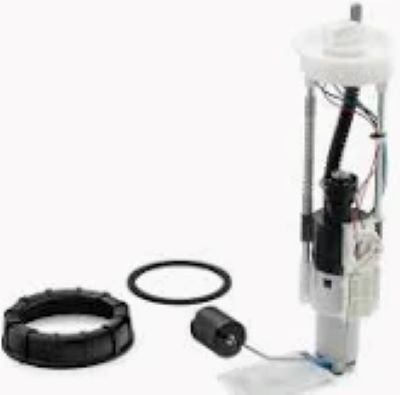A fuel pump pressure test checks how much of this fuel pressure is being delivered by your car's or truck's fuel system. This test makes sure that the pump is running to the specs it needs to. To run properly, most of today's fuel systems require 40-60 psi (pounds per square inch) for a normal engine operation. If the pressure drops to just 10 psi below its recommended range, you can start seeing symptoms such as sluggish acceleration and poor idling before even stranger things like engine misfires. Ensuring that proper fuel pressure is reached and maintained for high-performance vehicles is important, as a lack of power can be contributed to poor fuel delivery especially at higher RPMs.
The tool used to conduct this test is a fuel pump pressure gauge in the automotive industry. This gauge is Red and Blue with a big fat, long hose and is placed to the Fuel Rail or soon going to be to your fuel line so technicians can see the reading of pressure while it's running. A low pressure reading to measure the fuel system may be other problems that we can evaluate if a clogged filter can be failed in a few crackgauges or a bad point. A fuel pump pressure test usually require 15-40 minutes and will only cost you around $50-$100 to perform, making it very inexpensive compared to other diagnostic tests used for the engine.
If, say, pressure is low and there's a strong smell of gasoline in the vacuum line attached to the pressure regulator, the FPR might be bad — we replaced it for $75 from Joying Pump; a bad fuel pump can cost between $300 to almost $900 depending on vehicle make and model. A pressure test can help identify the problem early so drivers won't have to pay more in repairs later on if it was damage that extended to the fuel injectors or even worse, the engine.

In a real-world example, there was a fleet of delivery trucks losing power when running with high volumes on empty streets. Techs test fuel pump pressures and found several vehicles with less than 30 psi on the rails; these pumps would starve for fuel on acceleration. By replacing the defective pumps, the repaired trucks could function properly again, so no more time would be lost due to expensive repairs. This demonstrates the importance of performing a fuel pressure test in order to keep commercial vehicles performing.
Power, as Carroll Shelby once said, really is nothing without control Which essentially drives home the point that when it comes to fuel systems, no matter how much power an engine can theoretically produce, if there isn't sufficent fuel pressure present--that potential power will never see the light of day. This is for being able to regulate the pressure required for the engine to receive adequate fueling, especially in a performance mod or high demand car and help determine if you have a bad fuel controller.
Another part of a fuel pump pressure test is ensuring the fuel system can retain adequate pressure over a variety of circumstances to follow (friction, level ground, etc.) Under hard acceleration, insufficient fuel pressure may become apparent as engine hesitation or stalling. High pressure, on the other hand, causes fuel to run rich and essentially throw away your fuel economy and raise air emissions. Keeping the pressure at its correct level is essential because it helps cars run more efficiently, resulting in saving fuel and engine life.
If your response is, “Why would I do a fuel pump pressure test?” Plain and simply, it ensures the cars fuel system is operating as designed, avoiding potential future breakdowns while keeping vehicle in top form. The problem is that a defective fuel pump can remain undetected until it causes major engine damage — provided you don't perform regular testing.
For more information about fuel system maintenance and the significance of fuel pump pressure tests, please refer to this resource on Fuel Pump.